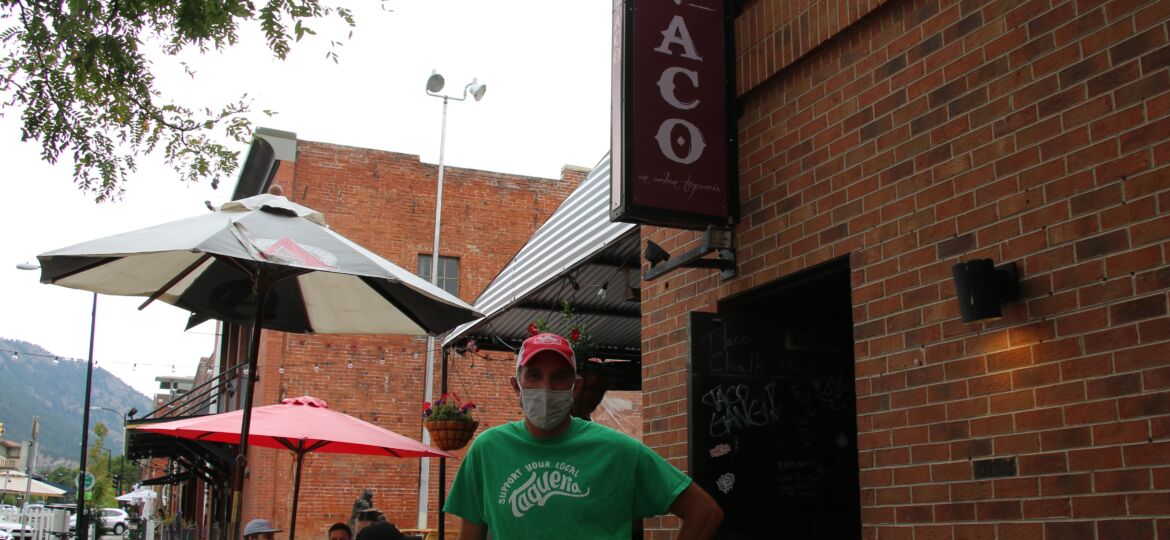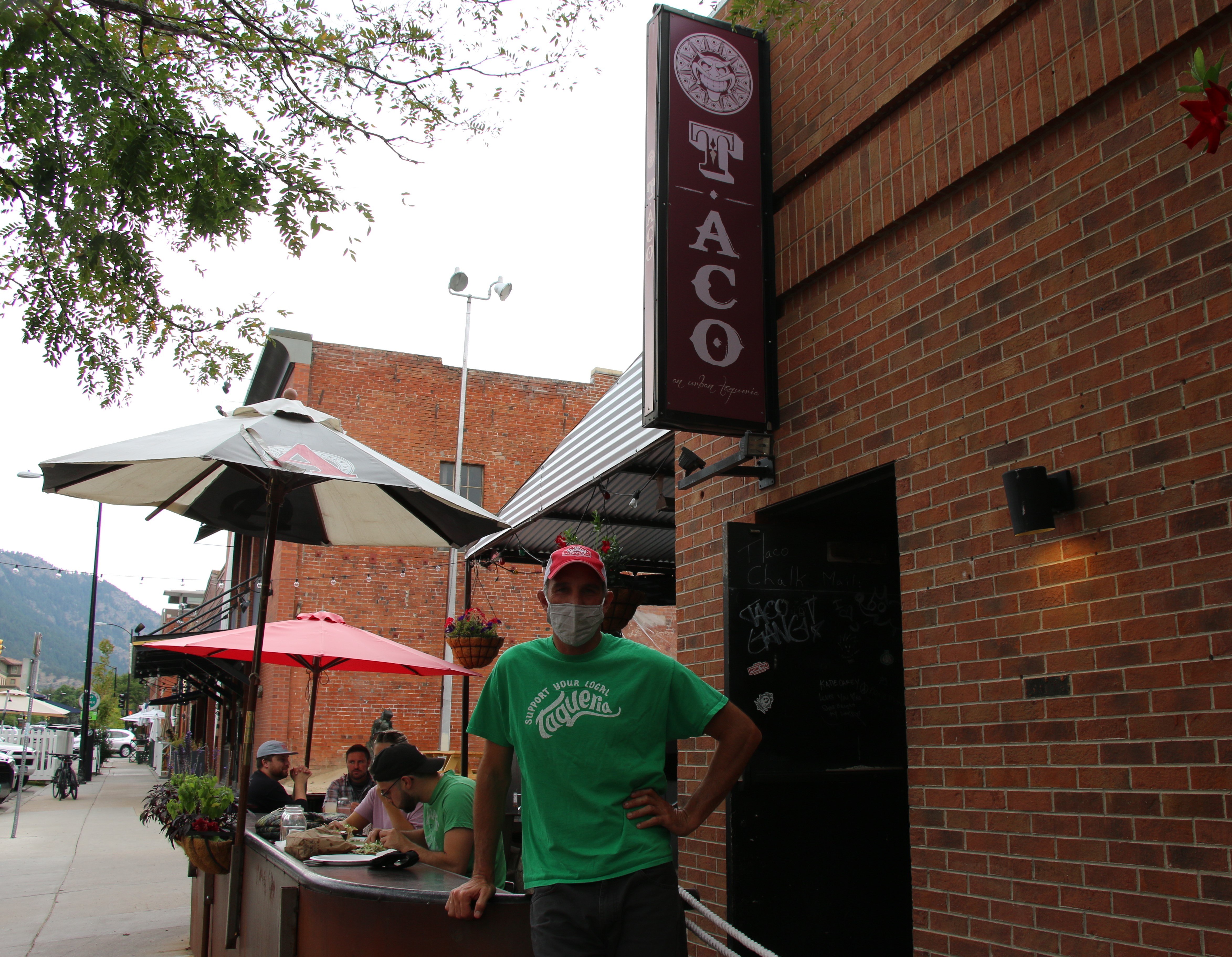
The Burden of the City Budget

When Josh Dinar became T/ACO partner owner in 2012, he never thought he would be in a position where his business property taxes would be competing with his income.
“It can be pretty painful, the difference between profit and nonprofit in the world of slim profit margins,” said Dinar.
While commercial property tax in Colorado is assessed at a rate of 29% and residential property tax assessed at 7.96%, business owners are forced to take on the majority of the burden of the city budget.
Managing Partner at T/ACO, Peter Waters, has witnessed the rise in property tax firsthand since 2012. “It is making everything more costly,” said Waters.
T/ACO, like most restaurants, have three major costs: rent, labor and ingredients.
“All three of those are not going down,” said Waters, “and triple nets are increasing just as much as our labor, if not more. It is painful.”
Since the initial outbreak of the novel coronavirus COVID-19, commercial property owners have experienced even more hardships from losing business from people coming into some having to close their doors.
“I see the opportunity for greater stabilization and the commercial property tax rate and that to me is going to help us to sustain and encourage more business activity,” said John Tayer, President and CEO of Boulder Chamber. “We see how important it is, you can have a good economy, but we all now recognize how fragile a good economy is.”
In May 2020, the Longmont and Boulder chambers of commerce joined forces with downtown business associations from both cities to sign an effort asking Gov. Jared Polis to have interest on unpaid property taxes waived or deferred. The businesses would then use that money to pay property taxes.
Currently, commercial property tax has business owners like Dinar between a rock and a hard place – closing down shop or paying the steep property tax – with the burden of the city budget on their heads. If the proposed budget for a retail center is $15 for operating expenses and $8 per square foot for taxes, tenants have to make enough money to be there and afford business.
The county assesses a business owner’s property at which point the county commissioner sets the calculation between what their approved budget is that they have to fund. The assessed values within that municipality are called the mill levy.
“The reality is there are only a few inputs to this calculation, one being the overall budget they have to fund, so if they spent less, they’d have to charge less,” said Scott Reichenberg, Commercial Broker and President of the Colorado Group. “We the people have to elect government officials willing to spend less,” Scott said.
The property tax is balanced against commercial businesses as a result of the Gallagher Amendment, which was amended to the state’s constitution in 1982. As residential property values continue to rise, a greater increase in commercial property tax occurs.
A repeal for the Gallagher Amendment has been put on the upcoming ballot by a bipartisan panel of state lawmakers. Property owners such as Reichenberg believe that the problem lies with the increases that commercial property tax currently is allowed.
“If there is a path forward, another way to do it would be to say property taxes that are stabilized can not go up more than 5% or equal to the sale value which it transacts,” said Reichenberg.
For Dinar, his commercial property tax often costs upwards of 50% of the total rent he pays. Fortunately for Dinar, the landlord at his other Boulder restaurant, River and Woods, were able to appeal a sizable tax increase. However, he is not the only one affected by this tax crisis.
Residential landlords in Boulder are also affected by this tax crisis. Part of the cost of rent is utilized to cover property taxes, which affects the rent-paying individuals, or tenants.
As residential property values rise, they end up forcing a greater increase in the commercial property tax. Furthermore, property tax on residential units is either going down or not going up fast enough which results in not enough resources to cover things like services that are critical to these more residential communities.
If the Gallagher Amendment gets repealed, it will only be a first step to repealing the TABOR Amendment, which puts limits on the amount of revenue the state can keep and use. Nevertheless, some believe that with the Gallagher Amendment up for repeal in November, more people are realizing the detrimental impact of property tax on business owners.
“I think that the tremendous burden that property tax is placing on business sustainability and activity ultimately sends the message that people are looking to support a vibrant economy and one of the ways you do that is equitably balancing the burden of taxes and fees that cover critical services but making sure it is balanced between commercial activity and residential interests,” said Tayer.
If residential property taxes and commercial property tax balanced out, the community would reap the disadvantages since the numbers of residential property owners staggers high above those who own commercial property. This process could take over a decade or more for this to work in order for the marketplace to have time to digest and absorb it.
“Making sure there is affordable housing along with that so you have a mix of incomes and people can afford to live all sizes of income can live in the town to some extent,” said Dinar. “Business is there to make a profit so there should be a disproportionate, just not quite this disproportionate.”

